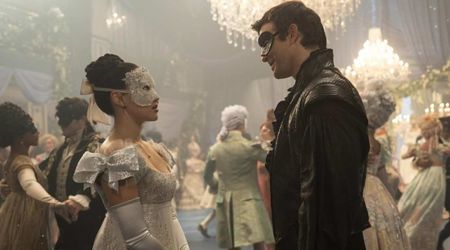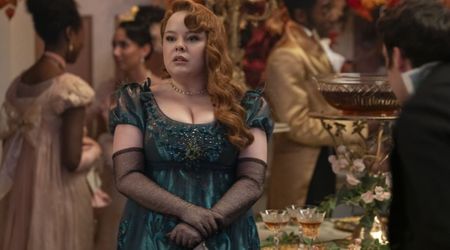'mixed-ish': ABC's upcoming 'black-ish' spin-off brings the Hollywood colorism debate into the limelight for all the wrong reasons

When ABC renewed 'black-ish' for the sixth season, the network also ordered to series 'mixed-ish', the prequel spin-off that will look at the life of Tracee Ellis Ross' Bow and her experiences growing up in a mixed-race family in the 80s. Young Rainbow "Bow" Jackson will be played by Arica Himmel and the show is set to premiere this fall.
When the trailer dropped in May of this year, it generated plenty of mixed reactions. While the show has not aired yet, many are unhappy with the content of the trailer. Bow narrates that today's children have many mixed-race personalities to look up to like Barack Obama, Drake, and Meghan Markle. However, Bow's family (including her white father, African-American mother, and two siblings) did not know of anyone else like them as they grew up in a commune, and therefore Bow and her siblings had no idea of the implications of being mixed-race children. In the trailer, when Bow goes to school with her brother and sister, they are quickly made fun of by the other kids, which include both white and black children.

The main issue the reactions cover is that of colorism. The term "colorism" is widely accepted to be coined by Pulitzer prize-winning novelist Alice Walker (who won it for 'The Color Purple') and was defined by her to be "prejudicial or preferential treatment of same-race people based solely on their color". This means, that even within communities of people of color, those with lighter skin are preferred over those with darker skin. This problem is already apparent in Hollywood, the casting of light-skinned actors in the role of dark-skinned African-Americans has been repeatedly criticized. For example, when Zoe Saldana (a light-skinned black woman) was cast as acclaimed American singer Nina Simone (who is darker) in the biopic 'Nina', many raised concerns. These concerns only intensified when it came to light that Saldana applied darker makeup and a prosthetic nose to play the role of Simone. Similarly, the original show 'black-ish' and its spin-off 'grown-ish' also received much criticism for its lack of dark-skinned African-American actors.
Viewers were quick to point out that the trailer victimizes biracial people for not being able to assimilate into one community. However, many light-skinned biracial people often are at an advantage due to their looks being closer to the Eurocentric standards of beauty (a la Hollywood). Further, the show even seems to propagate the stereotype that lighter-skinned black folks are made fun of because the dark-skinned folks are jealous and resentful of the former being "more beautiful". Further criticism was raised when Tika Sumpter was cast to play the younger version of Bow's mom in the prequel. The problem? In 'black-ish', the role is played by Anna Deveare Smith, who is much lighter than Sumpter. Even though both 'black-ish' and 'grown-ish' was criticized for its lack of dark-skinned African-Americans, this did not seem the right way forward.
Another issue being raised is that the show only considers the perspectives of the mixed-race community that includes white people and African-Americans, whereas the United States is a country of people from many backgrounds and many viewers feel it would be ill-advised to cover the problems of only one section of the mixed-race community. The show is, however, an important step forward in including narratives of people of color. The concept of mixed-race people being discriminated by both factions they are part of is not one that is much explored in Hollywood. The show would do well if it addressed this topic in terms of identity and not color. After all, one of the main challenges biracial people face is their identity, and how they can claim all sides of it.
When the show airs, the creators of 'mixed-ish' will have to try to address all the concerns raised about the show for it to be successful. They have to be able to portray the lives of mixed-race people accurately, while not diminishing the African-American people.










